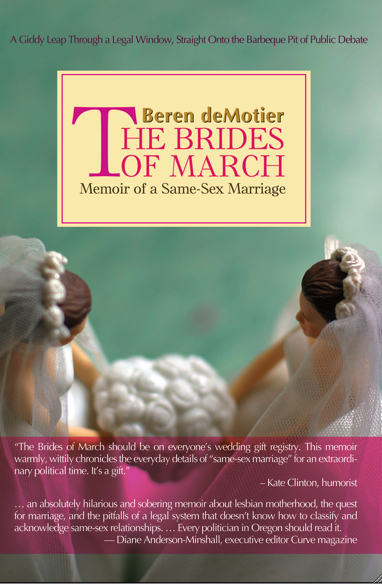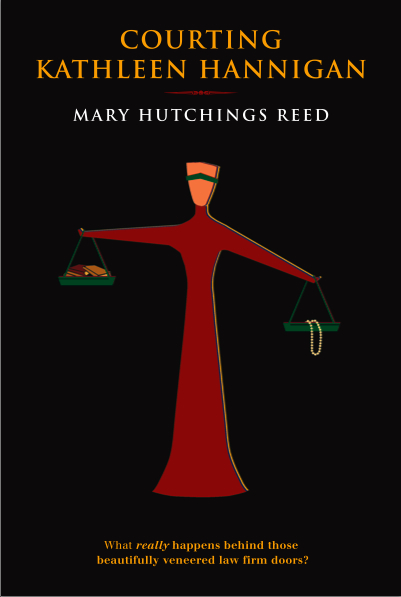Let’s start out with the obvious question: yes, I AM just getting into the swing of a series on pitching, and yes, as a general rule, I hold off on posts-by-request until after a series is complete. So yes, normally, I wouldn’t be doing this.
But yesterday, long-time reader Karen wrote in on a topic I know a number of my readers are pondering right now, how to respond to feedback on contest entries:
With your help, I entered the contest-that-shall-remain-nameless. I’m sorry that I can’t report that I won, or even placed. I didn’t. However, life is about learning. I just received my two critiques and I can’t tell you how valuable they are. Wow! One problem I have though is this…I read the critiques to my husband. He said, “How is it possible that the critiques are that good and you DIDN’T place?” I have no answer for that.
While there are a few suggestions that I am mulling over, for the most part, the comments are super-positive. This leaves me to wonder, “then why wasn’t I a finalist?” Is it just that the competition was so steep? I’m not sure what to think of it all. On the Additional Comments section, one even says-and I quote “Get this published!!!” Hmmmm…can you cover this sometime? What to do with the critiques when you DON’T win?
Anyway- I am not angry or bitter. I am actually very encouraged. I just don’t know which direction to go. Thanks for all your help Anne. Your blog rocks! ~Karen
Karen, I hear this from good writers all the time — not the part about my blog’s rocking, necessarily (although that’s always nice to hear) but questioning how seriously to take contest-generated critique. Since contest judges are anonymous and faceless, and since judging criteria are often shrouded in levels of mystery that would make the WTO’s deliberations seem transparent by comparison, many writers are left staring at feedback, wondering, “How close is this to what an agent or editor might say about my work?”
It’s a question asked with particular frequency in my neck of the woods, with respect to the Contest-That-Shall-Not-Be-Named. For those of you who do not live and write in my part of the country, the fact that the CTSNBN routinely has first-round judges give such feedback, in a format that implies that the opinions expressed are authoritative, is one of the contest’s main selling points to writers: every entrant receives two ostensibly well-informed critiques. Since this particular contest does not pay its first-round judges (nor, in the last couple of years, has it thanked them), the anonymity of the feedback presumably guarantees impartiality.
In years past, entrants did not receive their critiques until well after the conference at which the literary prizes were awarded; as of last year’s contest, the policy changed (thank goodness) so that entrants could benefit from feedback prior to pitching at the conference.
Which means, in theory, that if entrants are going to take advantage of these critiques, they have only a few weeks to do it now. So my addressing it after my pitching series was complete might be a TAD tardy. Thus the exception.
(Before I launch into it, in the interest of full disclosure I should say that I used to serve as a judge in the contest in question, but no longer do; I also won its highest nonfiction award in 2004 and was the organization’s Resident Writer for a year. In fact, the CTSNBN is my local writers’ association, whose name I no longer mention on this blog (for those of you who missed last year’s fiasco) because (a) I don’t feel that it deserves the free publicity, (b) its formerly quite prestigious conference and contest are now handled so differently that I can no longer in good conscience recommend either to my readers, (c) I think the purpose of a writers’ organization should be to help all of its members, not merely the ones who happen already to be published, and (d) I don’t like people who are mean to little old ladies. So much for that rather dull little explanation. Back to the question at hand.)
Obviously, it’s really, really hard to answer any question about how a contest entry might have been judged without, well, being one of its judges. Only someone directly involved with the administration of a contest would know for sure, for instance, if there had been a policy change in how the judges were asked to evaluate entries.
Taking a gander at the CTSNBN’s website, however, I do notice that there has been a policy shift that anyone might notice: instead of having 10 finalists in each category, there are now only 8. Which would almost inevitably mean that the competition for each finalist slot would be more intense.
So you’re quite right to wonder about the competition level, Karen — it’s not unusual for a category with 10 or 15 finalist slots to have seven or eight times that many entries that could have been finalists in a less competitive contest. When the field is narrowed still further, it’s probably safe to conclude that the differences between Finalist #8’s entry and Not-Finalist #1’s were pretty miniscule.
If not entirely a matter of personal literary taste.
Literary contest entrants are often shocked to realize this, but evaluating writing can never be entirely objective. Oh, the issues that tend to knock most entries out of the running are fairly easy to grade objectively — formatting problems, grammar, spelling, adherence to contest rules, and so forth — but presumably, any entry that would even have a chance of making the finals would not run afoul of any of these.
Beyond exclusion factors, judging style is necessarily subjective — which means, logically, that the difference of the tenth of a point in scoring that might have separated Finalist #8’s ranking from even the next twenty below must be equally so. Lest we forget, the individual judge just gets to assign a numerical value to the entry, typically, not to say this one should be a finalist or that one shouldn’t.
If another judge was more generous with points…well, I don’t need to spell out the inference, do I?
My point is, it’s not as though judging a writing contest is as straightforward as being able to rank every single entry as clearly better or worse than the one just above or just below it. Judges tend to think of them in groups, and the fact is, in a contest with a lot of good entries, one should expect that there would be more finalist-worthy entries than finalist slots.
Particularly if a contest is, for reasons that escape me, trying to limit its finalist slots.
Also, the entrant can’t know if the judges were looking for something specific this year — which happens more than the average entrant tends to think. The broader the category descriptions, the more likely this kind of unofficial judging preference is to crop up, I’ve noticed, if only to narrow the criteria for winning.
As one might want to do if, say, a contest lumped Mainstream Fiction and Literary Fiction into a single category, when the writing standards for each in the industry are quite different.
I always wonder about policy shifts when I hear of contest feedback like, “Get this published,” with or without the extra exclamation points. Frankly, from a judge’s point of view, it doesn’t make sense as feedback UNLESS the critiquer had some reason to believe that your entry WOULDN’T make the finals and didn’t want you to be discouraged by that outcome.
Think about it: as feedback goes, it isn’t all that helpful otherwise, since it’s unlikely to the point of ridiculousness that trying to get the entry published would already have occurred to anyone who entered a literary contest.
Judges’ perceptions of marketability also vary widely, especially if the judging pool’s level of professional experience is uneven. (As might be the case, for instance, in a contest where many of the long-time judges abruptly resigned in a huff and needed to be replaced in a hurry.)
If you’ll recall from my earlier posts on contest judging, marketability is usually weighted almost as heavily as style in judging. As both are in the eye of the beholder — and the former tends not to play a very heavy role on a feedback sheet — it’s impossible for the entrant to figure out how the points were assigned.
As if all that weren’t confusing enough, the rating forms (where the entries are actually assessed) are typically quite different from the feedback forms (which are sent back to the entrant). The feedback may or may not be reflective of the numerical scores the judge assigned the entry. That’s left up to the judge’s discretion.
One more possible rating factor to consider: although from a judge’s perspective, there is a very palpable difference between an entry that has no outstanding problems (which would tend to receive a very positive feedback sheet) and one that has the WOW! factor that just screams, “This one’s got a shot to win,” most contest critique forms do not reflect that. I cannot speak to the CTSNBN’s current format, but in the past, a judge would have had to make an additional effort to note this.
On most feedback forms, these two types of manuscript might seem very similar indeed.
On the bright side, this usually means that an entrant who received glowing feedback can at least be sure that she has not made any major mistakes — not an achievement at which any of us should be sneezing. But that doesn’t really offer many tangible hints about how to up the WOW! in the entry, does it?
I hate to bring up the other logical possibility, but it’s not beyond belief that the judges were kinder in their written evaluations than they were in their numerical ones, the ones that actually counted toward whether the entry made it to finalist consideration or not.
I know: the very notion is annoying, from the entrant’s perspective. But it does happen. In fact, sometimes the rules and even the evaluation forms themselves promote this kind of judging duality.
Manuscript critique is a serious responsibility, you know; it’s easy to crush someone’s ego without really trying. Back in the Paleolithic era, when I used to be a judge in that particular contest, we were encouraged to accentuate the positive in our feedback — and to provide as much specific, helpful feedback as possible. Some judges made the effort, some didn’t. (Some also interpreted this dictum to mean not to mention ANY areas of possible improvement, but that’s neither here nor there.)
To answer your husband’s question directly, then: since there’s not necessarily a correlation between the judges’ critique and the scores they assign the entry, it’s not really possible for an entrant who receives stellar feedback to figure out WHY her entry didn’t make the finals. Sorry about that.
But in any case, the critique forms would not give a solid indication of why one entry placed, rather than being just one of the finalists. Few literary contests are judged in a single round. In the case of the CTSNBN, the first-round judges (who produce the feedback) are neither the people who tabulate the results and pick the finalists (that’s the category chair) nor the people who decide who will win and place amongst the finalists (usually one of the agents or editors attending the conference).
Clear as mud, isn’t it?
In fairness, though, the CTSNBN’s judging practices (or what they were in the past, when I was actually involved with them) aren’t really any less opaque than most literary contests’. It’s in a contest’s interest to pretend that there are always clear demarcations between finalist and non-finalist entries, just as they would like us to believe that the difference in quality between first and second place, or between third and finalist, is so obvious that any professional could spot it instantly.
But in practice, as anyone who has ever been a contest judge can tell you (or would if s/he were being honest about it), the lines are seldom so clearly drawn.
What does all this mean for the feedback, those of you who entered the CTSNBN ask? Well, it’s not really possible to answer that without (a) reading the piece in question and (b) reading the feedback, of course. But here are a few general rules of thumb:
(1) If the critique contains discussion of any technical points — formatting, grammar, etc. — address those issues right away. Chances are, if these problems caught the eye of a contest judge, they are serious enough to annoy an agent or editor as well.
(2) If the critique doesn’t bring up technical problems, be very pleased with yourself.
(3) Weed out the generalized part of the critique (“Get this published!”); these points are not going to be of much use in revision. Save the compliments to cheer yourself up on a rainy day.
(4) Make a list of the specific critique points, so that you may weigh the suggestions and see if they seem reasonable. (If you’re like most writers, you may need to sit with them awhile and/or get an outside opinion before you can make this judgment. For tips on maximizing your objectivity about your own work, please see the GETTING GOOD AT ACCEPTING FEEDBACK category at right.) If they strike you as good ideas, try incorporating them.
(5) If any part of the critique doesn’t make sense to you, PLEASE do not incorporate it blindly, simply because it seems to be coming from an authoritative source. Find some good first readers to go over your work to see if the critique makes more sense to them.
This is an especially good idea if the feedback in question concerns the marketability of your entry. As I said, contest judges’ levels of experience in the industry vary WILDLY — not all of the feedback you receive may be of sterling value.
Remember, typically, first-round judges are writers, not agents or editors: their sense of what is and isn’t marketable may not be the current wisdom in the industry. Do your homework to double-check before you do a major overhaul on your manuscript based upon an anonymous judge’s opinion.
In short, treat contest feedback in much the same way as you would any other manuscript critique: warily, using what’s helpful and applicable without merely substituting someone else’s judgment for your own. Often, these critiques can provide substantial insight, but ultimately, it’s your book, right?
Phew — that was a heavy topic, wasn’t it? Next time, we’ll traipse off into the lighter world of…wait, we were talking about pitching, weren’t we? Never mind.
Keep up the good work!



















